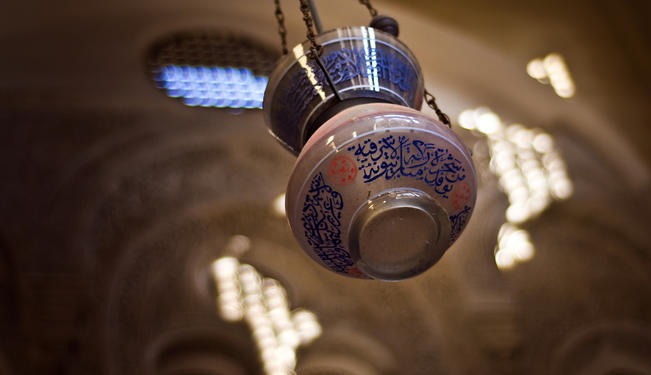By Mohamed Al-Daradji
Mohammed Al-Daradji, an Iraqi filmmaker, delivers a personal account of Iraq's art and culture scene.
From an early age and unbeknown to my parents, I used to sneak to the cinema every week to watch the latest film from India — there was only ever one career choice for me.
These experiences inspired my decisions later in life; exploring filmmaking, my national identity, and the issues surrounding the people of my country. Cinema can have such a profound and positive impact on people, not just as entertainment, but more importantly, as an education. I am passionate about my country and its future and feel my art, addressing post-war subjects is the best way for me to enlighten as well as evoke empathy.
Iraq has a rich and colourful history and is well known in the region for its art and culture. Despite this, more recent events have ensured a different international opinion. Amidst the violence of Saddam’s regime, the resulting coalition invasion and the prolonged occupation, the international view of Iraq and its people has become distorted and negative because of its troubled situation. Though much of its infrastructure has been ruined, its film and media institutions and cinemas destroyed, in truth, Iraq still holds a cultural and artistic nature, one that is slowly but surely, emerging and catching the attention of an international audience — as well as Iraq’s natives. Now more than ever, there is a flurry of exciting and unique art emerging from Iraq, something that deserves recognition.
Personally, I feel it is important to show an international audience the real situation in Iraq; the people who live there and the struggles they faced and have overcome, both during and after Saddam’s regime. I want to shine a positive light and to help recognise Iraqi’s as human beings, rather than statistics on the news.
I make my films for the people of Iraq, to share their stories. Of course, it is my responsibility as an Iraqi and as a filmmaker to tell the world about Iraq and also the Iraqi people themselves. When they watch the film in the cinema, they see it in a different way from international audiences; they see they are being heard as human beings and must learn from the past and Iraq’s mistakes to understand reality in a different way. For these reasons it is crucial that they are filmed on location in Iraq rather than a substitute, such as Jordan or Morocco. It is vital to the story, its message and Iraq’s existence. Hollywood films made about Iraq and the war, may bring attention to Iraq but are often biased and fail to address issues facing the Iraqi people or their point of view.
Events that showcase the art and culture of Iraq, serve only to benefit its people and an international audience. The Reel Iraq Festival is a perfect example of such a function and a lifeline in preserving, securing and promoting the future of Iraqi culture globally.
*[Note: This article was originally published by Reel Festivals. Fair Observer is a media partner of Reel Iraq 2013 — the festival takes place between March 21-25. For more information, please click here.]
The views expressed in this article are the author's own and do not necessarily reflect Fair Observer’s editorial policy.
Image: Copyright © Shutterstock. All Rights Reserved
Support Fair Observer
We rely on your support for our independence, diversity and quality.
For more than 10 years, Fair Observer has been free, fair and independent. No billionaire owns us, no advertisers control us. We are a reader-supported nonprofit. Unlike many other publications, we keep our content free for readers regardless of where they live or whether they can afford to pay. We have no paywalls and no ads.
In the post-truth era of fake news, echo chambers and filter bubbles, we publish a plurality of perspectives from around the world. Anyone can publish with us, but everyone goes through a rigorous editorial process. So, you get fact-checked, well-reasoned content instead of noise.
We publish 2,500+ voices from 90+ countries. We also conduct education and training programs
on subjects ranging from digital media and journalism to writing and critical thinking. This
doesn’t come cheap. Servers, editors, trainers and web developers cost
money.
Please consider supporting us on a regular basis as a recurring donor or a
sustaining member.
Will you support FO’s journalism?
We rely on your support for our independence, diversity and quality.






Comment